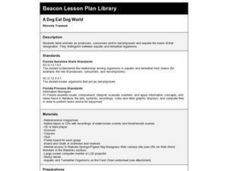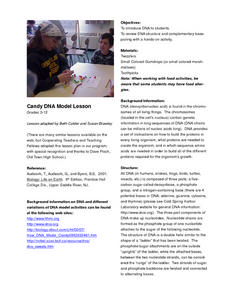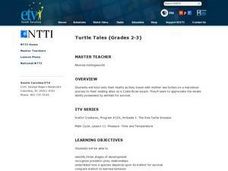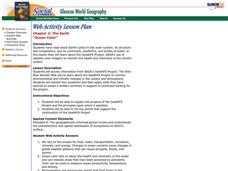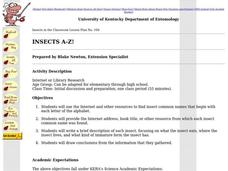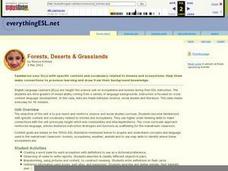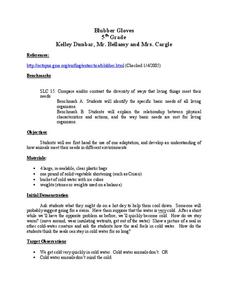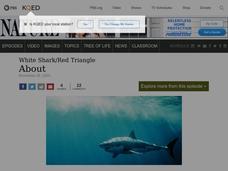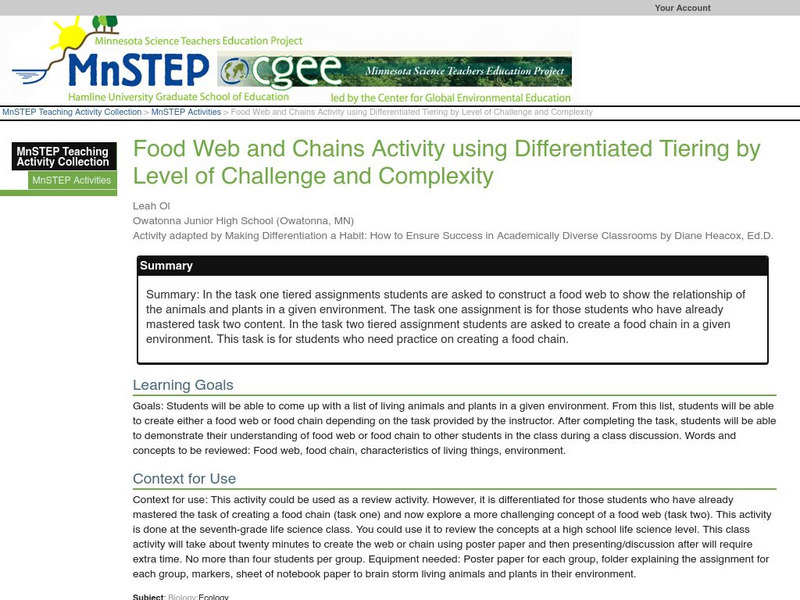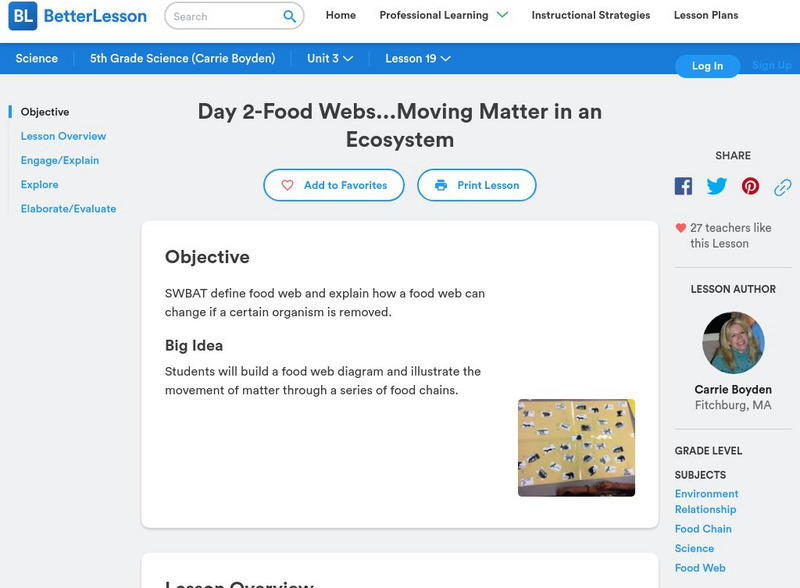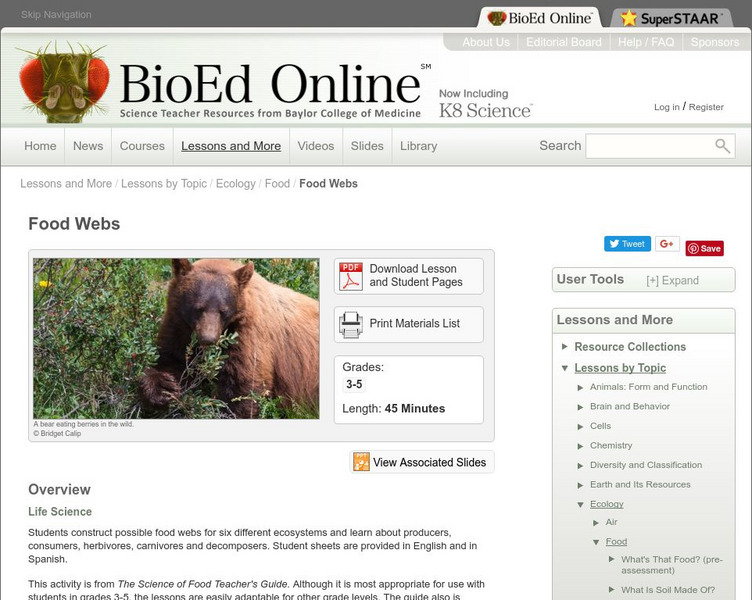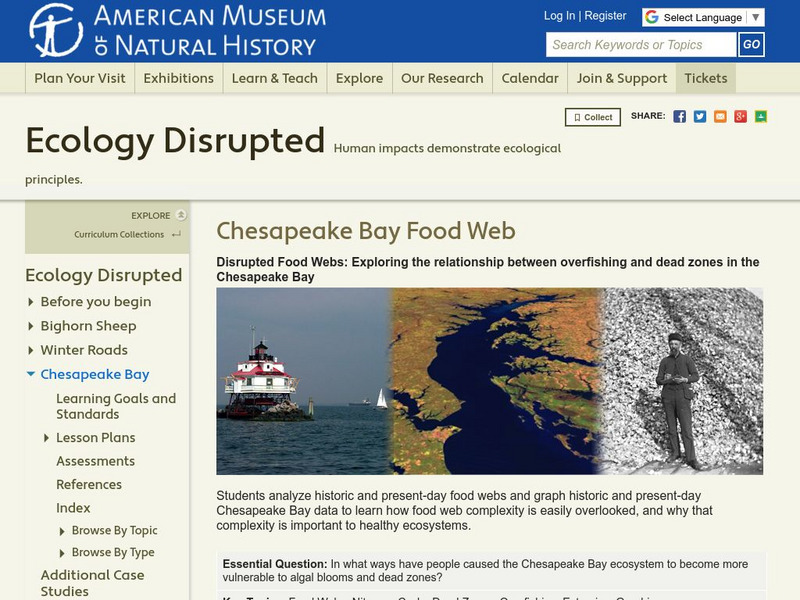Curated OER
"Habitats"
Students complete a unit of lessons on animals and animal conservation. They observe a square meter of ground outside the school, set up a model environment, analyze an owl pellet, grow bread mold, and explore various websites.
Curated OER
Water Quality Survey: Monitoring the Sustainability of Pigeon Creek
Students research the History of Pigeon Creek (or any watershed in your area). In this environmental science lesson, students conduct field tests such as pH and nitrates. They collect data and compare what they collected with other groups.
Curated OER
A Dog Eat Dog World
Fourth graders distinguish between acquatic and terrestrial organisms. They label animals as producers, consumers, and/or decomposers.
Curated OER
Exploring Ecosystems
Fourth graders create an ecosystem as a class. They have already produced smaller ones. They use a pond or something similar on school grounds to meet the needs of certain plants and animals of their ecosystem. Specifically created will...
Curated OER
Candy DNA Model Lesson
Young scholars explore DNA structure using materials such as Twizzlers, small colored gumdrops and/or toothpicks.
Curated OER
Signs of the Seasons
Students closely observe the natural world, record data, and notice patterns as the seasons unfold, they build a deeper understanding of seasonal change! The definition of phonology is the focus of this lesson and how it changes...
Curated OER
Turtle Tales
Students watch videos and fill out worksheets about the turtles and their journey to the Costa Rican beach. In this turtles lesson plan, students learn and discuss survival, predator and prey, and stages of development.
Curated OER
Birds of Prey
Students research various birds of prey on internet by following a worksheet with specific questions. Students answer questions on worksheet and write short response after completing research.
Curated OER
Night Creatures of the Kalahari
Learners conduct an experiment to demonstrate how fruit fly populations are controlled by spiders. They observe a variety of environments with fruit flies and spiders and consider how vital spiders are to controlling the insect population.
Curated OER
Earth Day Trash Survey Unit
Students develop an action plan to prevent trash from becoming a problem in the future.
Curated OER
Ocean Color
Students examine NASA's SeaWiFS Project Web site to explore how the SeaWiFS Project monitors environmental and climatic changes in the oceans and atmosphere. They answer questions and write a summary in support of continued funding for...
Curated OER
What Makes a Healthy Plant?
Students predict the effects of water, light, and soil on the development of a plant and then design an experiment to test their predictions.
Curated OER
Insects A-Z!
Pupils use the Internet and other resources to find insect common names that begin with each letter of the alphabet. They write a brief description of each insect, focusing on what the insect eats and where the insect lives.
Curated OER
Forests, Deserts, & Grasslands
Third graders complete activities to become familiar with the content and vocabulary related to biomes and ecosystems in order to mainstream into the classroom.
Curated OER
Something Fishy
Students identify and discuss the adaptive characteristics and behaviors of fish. They view slides of fish, and design and create a model of a fish of the future, listing the ways their fish adapt to survive.
Curated OER
Blubber Gloves
Fifth graders examine animal adaptations and how they meet their needs in a variety of environments. They discuss how they might adapt to their own environment before discussing how an animal could adapt. Next, they complete an...
Curated OER
Have You Ever Wondered?
Students use their personal knowledge and the Internet to discover where and how spiders live. In groups, they discuss their experiences with spiders and how their lives differ from other insects. They use new vocabulary to discuss their...
Curated OER
Shark Attack
Students examine the white shark. They think critically about a set of shark facts and predict whether the statements are true or false. Students describe a year in the life of a white shark living in the Red Triangle. They create a...
TeachEngineering
Teach Engineering: Food Chains and Food Webs
This instructional activity, supported by the provided power point lecture (LESSON 1 and 2 Ecology Lecture Supplement ), introduces students to the concepts of food chains and food webs. Through its use, students learn the difference...
Science Education Resource Center at Carleton College
Serc: Differentiated Tiering Food Web and Chains Activity
Two differentiated tasks about food chains and webs. In the more challenging task, young scholars construct a food web to show the relationship of the animals and plants in a given environment. In the lower level task, students create a...
Better Lesson
Better Lesson: Food Webs Moving Matter in an Ecosystem(day 2)
Students will build a food web diagram and illustrate the movement of matter through a series of food chains. Resources include detailed plans, examples of student work, videos of the lesson in action, and sample food webs.
BioEd Online
Bio Ed Online: Food Webs
Students construct possible food webs for six different ecosystems as they learn about the roles of producers, consumers, herbivores, carnivores and decomposers.
American Museum of Natural History
American Museum of Natural History: Ecology Disrupted: Chesapeake Bay Food Web
In this comprehensive lesson plan unit, students examine how overfishing has affected Chesapeake Bay's ecosystem. They will study food webs from the past and present and graph related data.
Smithsonian Institution
Smithsonian Environmental Research Center: Forces of Change: Weaving the Web
The young scholars will become the food web in this fun interactive classroom activity. Detailed instructions, background information, guiding questions, and activity worksheets are provided.
Other popular searches
- Food Chains Food Webs
- Food Chains and Webs
- Food Chains and Food Webs
- Food Chains, Food Webs
- Food Chains Webs
- Ecology Food Webs Chains
- Ocean Food Chains and Webs
- Food Chains/food Webs


